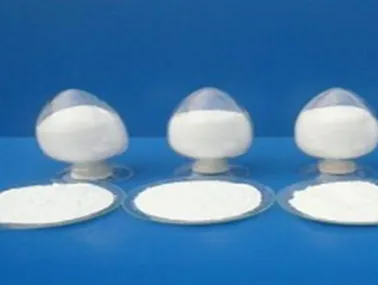
silicone anti foaming agent in food
Silicone Anti-Foaming Agents in the Food Industry
Silicone anti-foaming agents play a crucial role in various aspects of food processing and manufacturing. The presence of foam in food production can lead to inefficiencies, impacting not only productivity but also the quality of the final products. As such, the use of silicone-based defoamers has become increasingly common in the food industry, offering a range of benefits that contribute to more efficient processes and better end results.
Understanding Foaming in Food Production
Foaming can occur in various stages of food processing, from the mixing of ingredients to cooking and even during the packaging of products. Foams are bubbles formed when gas is trapped in a liquid, and while some foams are desirable (like those in whipped cream or meringue), many types of foam can be problematic. Uncontrolled foaming can interfere with equipment operation and can even lead to product waste. For instance, excessive foam can cause overflow in mixing tanks, leading to losses and increased cleaning requirements.
The Role of Silicone Anti-Foaming Agents
Silicone anti-foaming agents are specially designed formulations that help to reduce or eliminate unwanted foam. These agents work by spreading across the surface of the foam bubbles, destabilizing the bubbles and facilitating their collapse. The unique molecular structure of silicones allows them to effectively lower the surface tension of liquids, which is critical in managing foam.
One of the key advantages of silicone anti-foaming agents is their high efficacy at low concentrations. This means that only small amounts are required to achieve significant defoaming action, making them economical and easy to incorporate into food processing lines. Furthermore, silicone defoamers are thermally stable, ensuring that they remain effective under the varying temperatures encountered during food processing.
silicone anti foaming agent in food

Applications in Food Processing
Silicone anti-foaming agents are versatile and can be used in a variety of food applications. They are commonly employed in the production of beverages, baking, dairy processing, and more. For example, in the beverage industry, defoamers are used during the fermentation process of beer to control excessive foaming, which can disrupt production and lead to yield losses. In dairy processing, silicone defoamers help to reduce foaming during the pasteurization of milk and the production of cheese, ensuring smoother operations and improved product quality.
In baking, silicone anti-foaming agents can be beneficial in cake and batter mixtures by preventing excessive foam formation that can affect the texture and volume of the baked goods. Additionally, they are useful in sauces and dressings to maintain a clear appearance and prevent foam during packing and processing.
Safety and Regulatory Considerations
When it comes to food applications, the safety of additives is of paramount importance. Silicone anti-foaming agents used in the food industry are typically formulated to meet food safety regulations laid out by organizations such as the FDA and EFSA. It is crucial that these agents are derived from food-grade materials and have undergone rigorous testing to ensure they do not pose any health risks to consumers. Manufacturers must also comply with labeling requirements to inform consumers about the presence of additives in food products.
Conclusion
Silicone anti-foaming agents are essential tools in the food industry, addressing the challenges posed by unwanted foam during production. Their effectiveness, low usage rates, and safety make them a favorable choice for food manufacturers aiming to optimize their processing efficiency while maintaining the highest quality standards. As the food industry continues to evolve, the role of silicone anti-foaming agents will likely become even more significant, contributing to innovations and improvements that benefit both producers and consumers alike. Through careful formulation and adherence to safety regulations, these agents not only enhance food processing but also ensure that the products reaching consumers are of the highest quality.
-
Regulatory Compliance for Global Mining Chemicals UseNewsAug.12,2025
-
Mechanism of 1 2 3 Benzotriazole Corrosion InhibitionNewsAug.12,2025
-
Catalyst Innovations for Ammonia Fertilizer SynthesisNewsAug.12,2025
-
Biological Pathways for Formic Acid MetabolismNewsAug.12,2025
-
Ammonium Bicarbonate Decomposition Temperature AnalysisNewsAug.12,2025
-
Aluminum Hydroxide in Vaccine AdjuvantsNewsAug.12,2025
-
Water Treatment Chemicals for Industrial ProcessesNewsAug.07,2025
Hebei Tenger Chemical Technology Co., Ltd. focuses on the chemical industry and is committed to the export service of chemical raw materials.
-

view more DiethanolisopropanolamineIn the ever-growing field of chemical solutions, diethanolisopropanolamine (DEIPA) stands out as a versatile and important compound. Due to its unique chemical structure and properties, DEIPA is of interest to various industries including construction, personal care, and agriculture. -

view more TriisopropanolamineTriisopropanolamine (TIPA) alkanol amine substance, is a kind of alcohol amine compound with amino and alcohol hydroxyl, and because of its molecules contains both amino and hydroxyl. -

view more Tetramethyl Thiuram DisulfideTetramethyl thiuram disulfide, also known as TMTD, is a white to light-yellow powder with a distinct sulfur-like odor. It is soluble in organic solvents such as benzene, acetone, and ethyl acetate, making it highly versatile for use in different formulations. TMTD is known for its excellent vulcanization acceleration properties, which makes it a key ingredient in the production of rubber products. Additionally, it acts as an effective fungicide and bactericide, making it valuable in agricultural applications. Its high purity and stability ensure consistent performance, making it a preferred choice for manufacturers across various industries.











